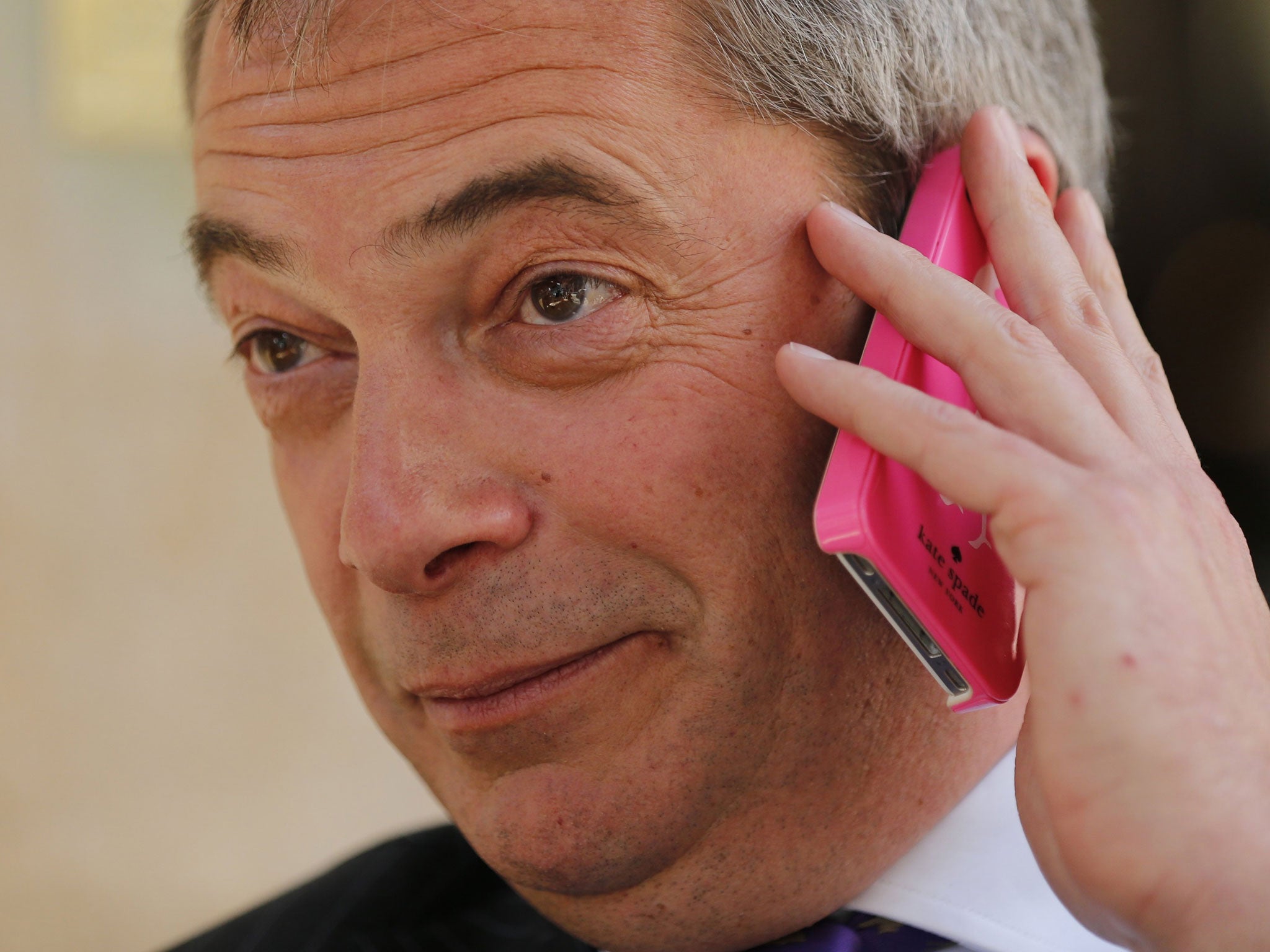Even without winning a single constituency, Ukip could still transform the 2015 general election
Inside Westminster

Britain now has a four-party political system. It changed from a two-and-a-half to a genuinely three-party system when the Liberal Democrats joined the Conservatives in coalition in 2010. With a real prospect of another hung parliament in 2015, it seemed that three-party politics was here to stay.
The UK Independence Party's stunning success when the local election results were announced today has thrown the three parties' preparations for 2015 into turmoil. Nigel Farage can no longer be dismissed as the joker in the pub. He is suddenly the wild card that could turn British politics upside down.
True, there have been false dawns before. The Green Party broke through at the 1989 European elections, but its single-issue image allowed the mainstream parties to give themselves a green spray-on. The Social Democratic Party (SDP) almost broke the mould when it broke away from Labour in the early 1980s. But there was only room for one centre party and it merged with the Liberals.
Ukip is different. Its breakthrough is the biggest shock to the political system since the Second World War. Mr Farage's party hoovered up twice as many votes as the Conservatives expected. It is too soon to say whether the anti-establishment party will become a force in its own right or, like the Greens and the SDP, a catalyst that sparks change in other parties. Ukip's march will continue. Today's advance gives it a strong platform for the European Parliament elections in June next year, the last nationwide election before the 2105 general election. Euro elections are fought under proportional representation and Ukip now has every chance of coming top next year. That would certainly spook the Conservatives, not least because their MPs will be able to calculate whether they would lose their seats if Ukip repeated its performance at the general election.
The real challenge for Mr Farage will be how to do well in 2015 under the much harsher first-past-the-post system. Councillors put down roots, enabling the party to build from the bottom up. The Lib Dems were good at turning council seats into parliamentary gains. Ukip will not be short of rich donors, but will need to target its resources skilfully to have any MPs after the 2015 election.
Even without winning a single constituency, Ukip could still transform the general election. Mr Farage will have a strong claim to feature in the television debates between the party leaders, though I suspect David Cameron, Ed Miliband and Nick Clegg will conspire to exclude him.
Ukip will certainly influence the policies of the other parties. Labour may take some comfort from today's split being on the right rather than on the centre left, which helped Margaret Thatcher win in 1983 and 1987 after the SDP breakaway. Ukip's advance does not suggest the centre ground is shifting left, as Mr Miliband hopes. The Liberal Democrats will remain in the middle of the road and will be happy if Labour takes a left turn.
Labour may have to rethink its opposition to a Europe referendum. Mr Miliband is reluctant to offer one in Labour's 2015 manifesto but Ukip's success will strengthen the hand of those who want to consider such a move, including Ed Balls, the shadow Chancellor. Labour will need to shrug off the label of being "the welfare party" to blunt Ukip's appeal to white working class voters.
Mr Cameron is already under pressure to harden the Tory line on Europe, immigration and welfare. I doubt that the EU was in many voters' minds when they voted Ukip. But immigration undoubtedly was. "This is not about Europe, it's about immigration," one Tory minister said today.
If the Prime Minister veers right, it could cause immense strain inside the Coalition. Relations between the Tories and Lib Dems are already scratchy and the Ukip tide could speed up the inevitable divergence of the two coalition parties before 2015.
It won't be easy for Mr Cameron to woo defectors back to the Tories. Since January, he has been trying to prevent a haemorrhage to Ukip - for example, by promising an in/out referendum on Europe by 2017. It looked significant in the Westminster village but many voters aren't listening to the mainstream parties.
Mr Cameron may have less room for manoeuvre than he wishes. If he tries to push his Government's policy to the right, a push-back from the Lib Dems could create another omnishambles from which neither party would benefit.
Mr Cameron's January speech on Europe sounded tough but, to ensure the UK has some influence with our EU partners as he seeks a "new settlement," he said he hoped to recommend a vote for continued EU membership in the referendum. "A lot of people want out," said one Eurosceptic Tory MP. "People know Cameron wants to stay in. Ukip will highlight that. It doesn't need to move the goalposts."
PMr Cameron will be under enormous pressure to tack right, to prevent Ukip depriving the Tories of victory in key marginals in 2015. But if he does, he could alienate the centre ground voters he will need to have any chance of victory. He didn't fail to win a majority in 2010 because he was not right-wing enough. As one Cabinet minister said: "Our problem isn't David Cameron, it's the Tory brand."
Subscribe to Independent Premium to bookmark this article
Want to bookmark your favourite articles and stories to read or reference later? Start your Independent Premium subscription today.

Join our commenting forum
Join thought-provoking conversations, follow other Independent readers and see their replies